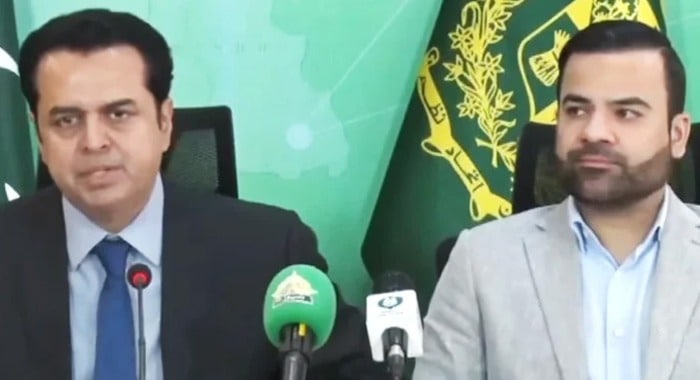In a renewed push against online extremism, the Government of Pakistan has formally called on global social media operators to block anonymous accounts believed to be used by terrorist groups. The demand came during a joint press conference held in Islamabad by Minister of State for Law and Justice Barrister Aqeel Malik and Minister of State for Interior Talal Chaudhry, who stressed Pakistan’s unwavering commitment to the global fight against terrorism.
“We want these terrorist-operated accounts shut down,” said Barrister Aqeel Malik. “We are requesting full cooperation from social media companies. The accounts we’ve flagged are directly affiliated with terrorist organisations, many of which are also listed as proscribed by the United Nations.”
This move is part of Pakistan’s broader digital counter-terrorism strategy, which recognises the internet as a growing battleground for recruitment, propaganda, and operational coordination by militant groups. Officials revealed that many of the accounts in question operate anonymously, with obscured identities and unknown geolocations, potentially originating from conflict zones like Afghanistan.
The ministers underscored the urgent need for data-sharing mechanisms between platforms and Pakistani authorities. “We don’t know exactly where these accounts are being run from,” said Malik, “but they are clearly being used to spread extremist content and coordinate activities. Blocking them is a security imperative.”
Minister Talal Chaudhry highlighted the use of platforms such as WhatsApp by designated terrorist outfits, stating that such digital channels pose a real threat not only to Pakistan’s internal stability but also to global peace. He added that local intelligence agencies had identified specific accounts operating within Pakistan that were linked to internationally banned groups.
Pakistan has also welcomed the establishment of physical offices for social media companies within its borders, stating that it would facilitate real-time cooperation and compliance with local and international counter-terror frameworks.
“Pakistan has paid a high price in its war against terrorism, in both lives and economic cost,” Barrister Malik reminded the media. “We stand firm as a front-line state in the global fight against terror and expect international digital platforms to stand with us.”
This latest demand signals a stronger posture by Islamabad on digital governance in counter-terrorism, aligning with FATF compliance efforts and broader international norms. It also reflects the evolving nature of modern terror threats, where virtual safe havens can be as dangerous as physical ones, requiring cyber intelligence, platform accountability, and cross-border cooperation.
Pakistan’s move may also set a precedent in the region for more assertive digital regulation aimed at dismantling the online infrastructure of extremism.





